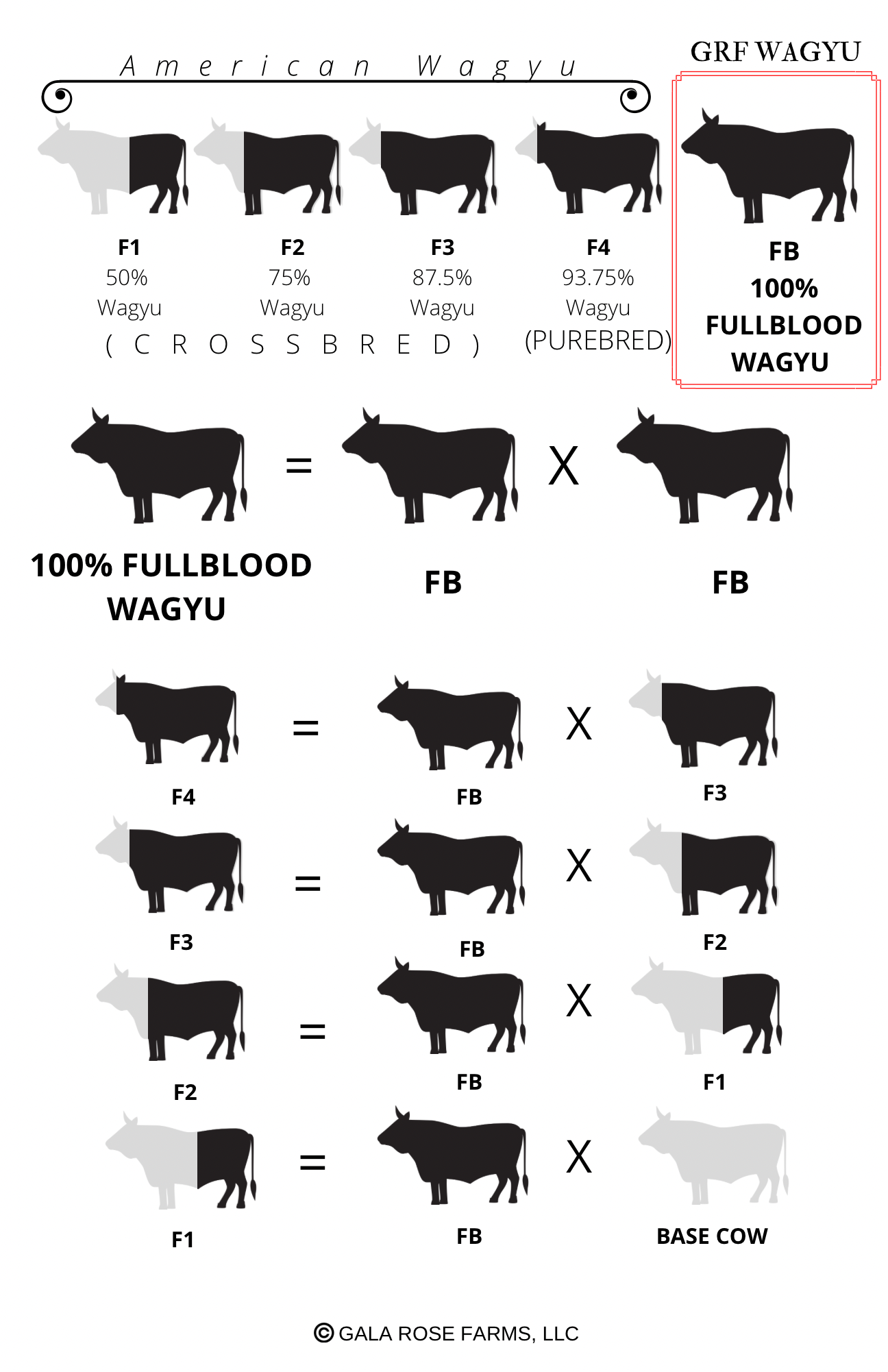Wagyu Today.
In the USA today, Wagyu genetics are known to improve beef quality and value. As a result, beef with Wagyu influence, from percentage to full-blood, is marketed using a variety of terms such as “American Wagyu”, “American Kobe”, “Kobe-style” or most incorrectly as “Kobe” beef.
“American Wagyu” is used to describe a cross-bred (F1, F2, F3) or pure-bred (F4) Wagyu animal (see chart above). Full-blood Wagyu are Wagyu animals from a full-blood Wagyu cow and full-blood Wagyu bull with no other breed influence. All of our Wagyu animals are DNA parent-verified full-blood black Wagyu meaning their genetics can be traced back to the full-blood Wagyu animals that were first imported from Japan.
All Kobe beef is Wagyu beef but not all Wagyu beef is Kobe beef. Kobe beef is beef that has been raised and harvested in Kobe, the capital of Japan’s Hyogo Prefecture. For that reason, any beef that has been raised in the USA, no matter of its percentage of full-blood Wagyu influence, can not be “Kobe” beef. Oftentimes “Kobe” is used because it is more recognizable than “Wagyu”. “Kobe”, “American Kobe” and “Kobe-style” are often used in restaurant settings for that reason.
It is important to differentiate full-blood Wagyu products from these other products so that consumers know what they are getting.


